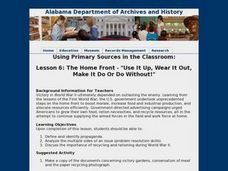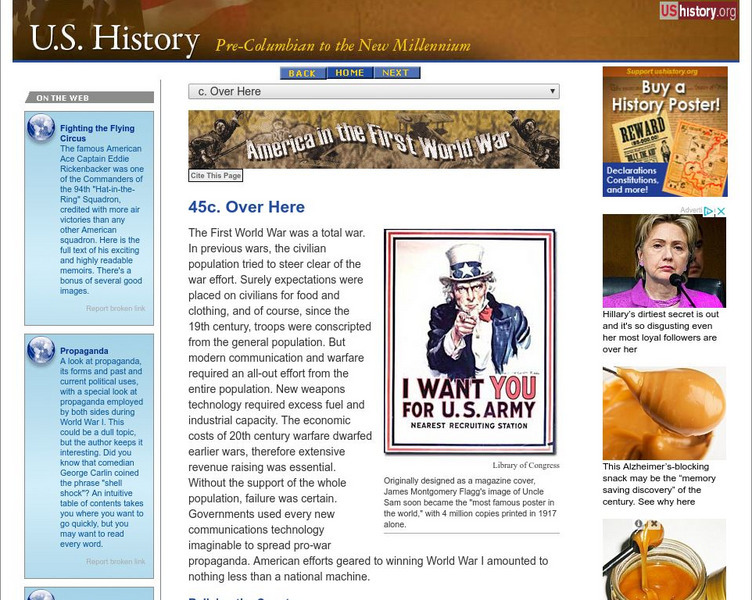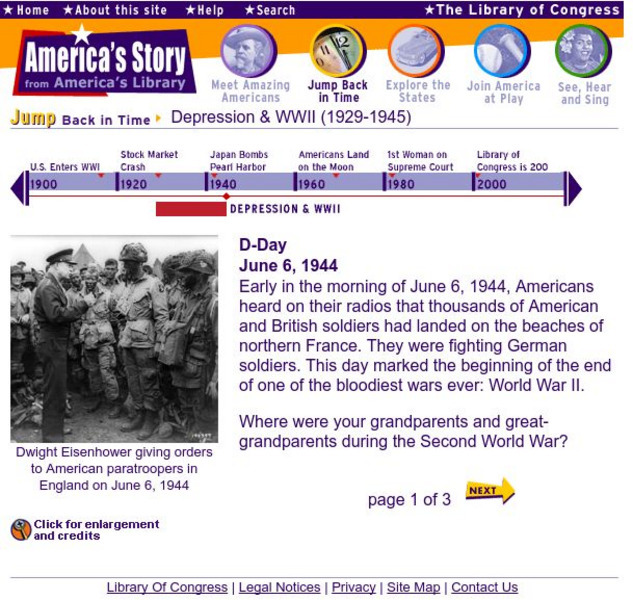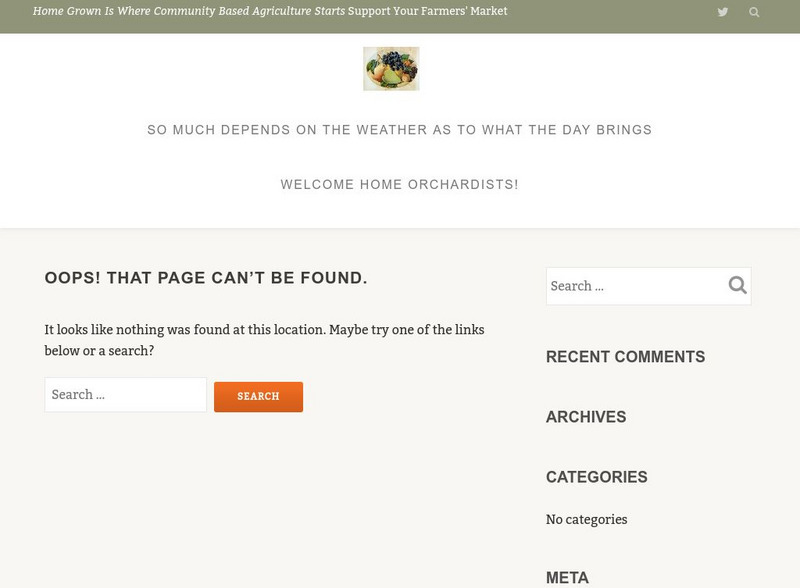Curated OER
Rationing in WWII
What was life like in Britain during World War II? Discover how England used rationing to encourage conservation during a time of war. Learners will see images of actual ration books and read how people used them to buy clothes, food,...
Curated OER
Gardens Throughout the World
Fourth graders study various aspects of gardens. For this garden lesson, 4th graders discover the location of famous gardens on a map. Students research historic gardens.
Curated OER
The Home Front - "Use It Up, Wear It Out, Make It Do Or Do Without!"
Young scholars examine documents that explore U.S. government advertisements from the WWII era that encouraged people to grow victory gardens, recycle and conserve resources as part of the war effort. They discuss propaganda and design...
Other
Earthly Pursuits: The War Garden Victorious
An ebook first published in 1919 and the definitive text on war gardens and gardening.
PBS
The War: Plant a Victory Garden
At the online companion site of the PBS documentary series "THE WAR," view a poster from WWII that calls on citizens to help lessen the demand for store-bought food by planting a garden.
Independence Hall Association
U.s. History: Over Here
World War I was not fought by Americans just in Europe. Read about the many ways people at home helped the war effort. See how badly German-Americans were treated as anti-German passions were fueled.
Library of Congress
Loc: America's Story: D Day (June 6, 1944)
The Library of Congress provides a brief overview of D-Day (in three parts), the day that thousands of American and British soldiers landed on the beaches of northern France.
Other
Fruit From Washington: Crop Harvests at Home in America in World War Ii
This site is filled with posters from World War II, the Great Depression, and World War I which encouraged using food wisely, growing victory gardens, and helping harvest the crops on commercial farms.









